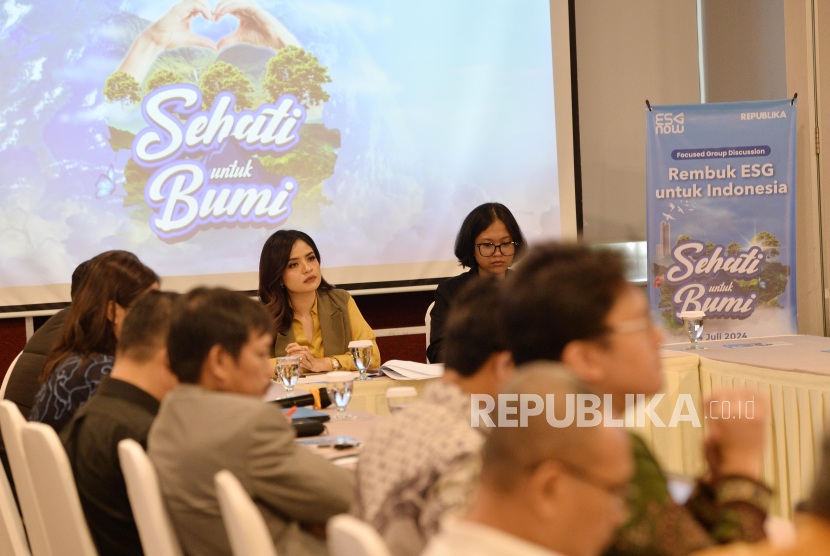REPUBLIKA.CO.ID, JAKARTA -- Implementation of Environmental, Social, and Governance (ESG) aspects is a necessity for business to run sustainably. This was emphasized by the Ministry of state-owned enterprises to implement ESG aspects in business operations.
This was stated by Deputy for Human Resources, Technology, and Information of the Ministry of BUMN, Tedi Bharata while attending the ESG Rembuk for Indonesia event held by Republika at the Indonesia Stock Exchange building, Jakarta, Thursday (4/7/2024). The focus group discussion (FGD) started the series of activities Sehati for the Earth organized by Republika this year.
Tedi confirmed that ESG has become the new DNA of the Ministry of state-owned enterprises. “State-owned companies must apply ESG principles in their production activities, as well as in various other activities. Also in various other activities,” Tedi said.
Tedi added that the commitment to implementing ESG has even been enshrined in the Ministerial Regulation of State-Owned Enterprises Number 3 of 2023 on Governance Guidelines and Significant Corporate Activities of SOEs. In the rule it is affirmed that the business plans of SOEs must include elements of sustainability, both from the environmental, social, and governance aspects.
“If, for example, it does not include a plan or strategy to address the environmental impact of its business, then the proposed proposal or business plan is returned again, requested to be revised by the Deputy Finance. It's been running,” he said.
At its core, says Tedi, ESG becomes an important part and is a necessity that must be run, although its implementation is not easy.
Therefore, he appreciated the initiative of Republika for the promotion of FGD activity “Rembuk ESG for Indonesia”. According to him, this FGD can accommodate ideas and input from various circles to improve the application of ESG in state-owned enterprises.
“Of course we are very pleased with the initiatives for which we need private input. Friends of academia, as well as from other places, to be able to apply the principles of ESG,” Tedi said.
Regarding the organization of FGD, Republika Operational Director Hasan Murtiaji said Republika does not just want to be a media to disseminate information. More than that. Republika takes on the role of providing a forum for exchanging ideas and enriching knowledge about ESG.
“This FGD will generate recommendations to the government and other stakeholders on how ESG can be implemented according to the needs of society and business operators today,” Hasan said.
In this FGD, it is discussed on how to promote a sustainable pace of investment. In addition, it is expected to assist the government in achieving the Net Zero Emissions 2060 target.
FGD Republika in this series of events Sehati for the Earth was attended by discussion participants from various elements. There are from governments, corporations, funding agencies, academics, and ESG issue-watchers. From this discussion, ESG policy recommendations for Indonesia will be formulated. The recommendations can be used as input material for the government in policy formulation as well as further studies in ESG implementation.


